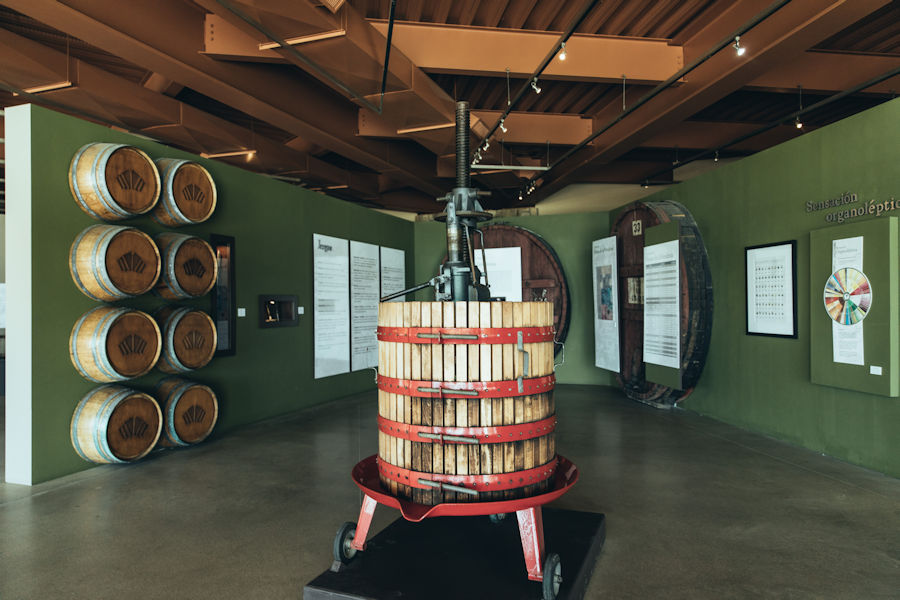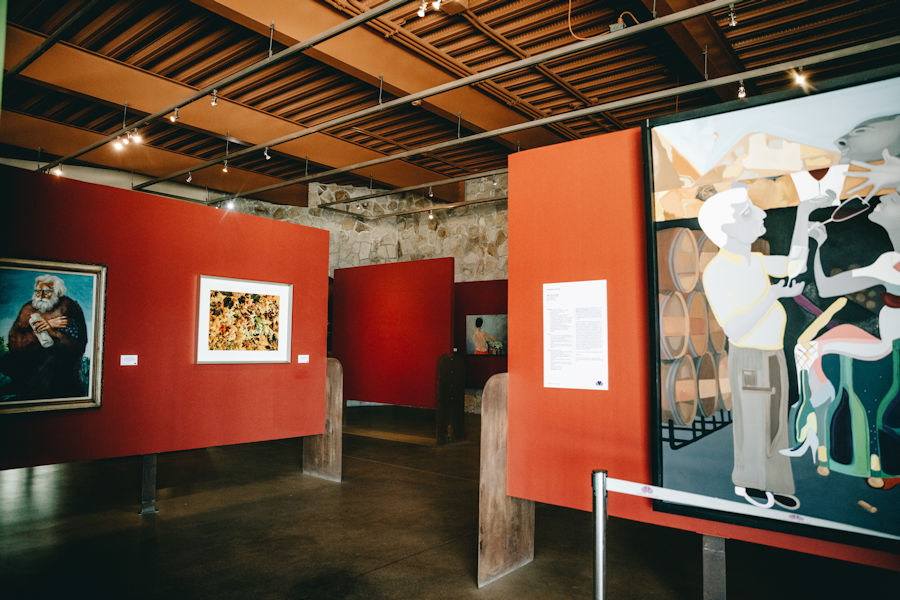 |  |
A gleaming state of the art structure in the heart of the sun-drenched Guadalupe Valley is a traveler's dream destination. The beauty of the architecture stands out against the backdrop of granite mountains, fertile soil and lush graceful vines, now showing their fall colors. Just north east of Ensenada the Vine and Wine Museum was inaugurated August 6, 2012. The museum is a rich collection of viticultural history, as well as the most modern methods of wine production happening today.
Wine enthusiasts descend into the museum as if going into a wine cellar. This is a priceless resource for wine lovers ranging from the true connoisseur to those who just like a good wine with a meal. It is also a great opportunity for a first time visitor to Baja and the wine country. The museum offers a foundation for understanding wine production from the soil and weather requirements to the bottling. The climate makes it ideal for producing the very deep red Nebbiolo to the fresh organic of the Misión grape. Baja's Mediterranean climate is similar to the California wine country, but Baja winemakers are creating their own distinctive bouquets that some say rival their northern neighbors. A visit to the Vine and Wine Museum benefits all visitors by creating a deeper understanding of the love and the art that goes into making good wine. A tour of the valley can start here and the traveler is guaranteed a deeper appreciation in the wine tasting experience. Newly added are the weekend conferences for the history buffs and wine enthusiasts; these are free of charge.

Thoughtful organization went into presenting the history. Baja has a rich ethnic history from the Spanish Jesuit fathers planting grapes for their sacramental wine to the Russian Molokanes who developed large commercial vineyards in 1906. Many of their wooden tools are on display from that time period. Today, according to a local winemaker, if you include the major, minor and artisanal winemakers in the valley there are well over a hundred. In fact, 90 percent of the country's wine comes from the Ensenada region.
In the softly lit interior fine art and bronze sculptures are a perfect pairing each with a touch of the vine as a theme. Huge oak barrels are embedded in the walls; track lighting spotlights the displays and create a vivid impression of what goes into making good wine. A series of towering glass shelves hold wine bottles from each vintner of the valley. Included at intervals along the way, are movies showing the production, and even how the oak barrels are crafted, a true art in itself. The special attention to detail and the lovely low lighting sets the mood for the whole experience as if being in a cava where the wine is aged.
Above the underground museum is a convention center with a panoramic view of the spectacular valley. During the summer months, as far as you can see are the grape vines lush with leaves and clusters of maturing grapes. The harvest is celebrated as the Vendimia every year in August, while the actual harvest can go well into September. October has the vines showing their fall colors and winter vines are bare and snakelike.

Mexico's President Felipe Calderón, during the inauguration, stressed that Baja wine-making has a long tradition, and is "a deep source of pride for Mexico." Certainly this is one of the most sophisticated day excursions close to home, and only two-hours from the US border.
Directions: Take Highway #3 Tecate, the Ruta del Vino, between the small town of San Antonio de Las Minas and Fransico Zarco at Kilometer 81. Open 9am to 5pm six days a week, closed Mondays. Donations: $4.00 US or $50.0 pesos, Seniors and Students are half-priced with ID.
Article by Martina
Photography by Cintia Soto